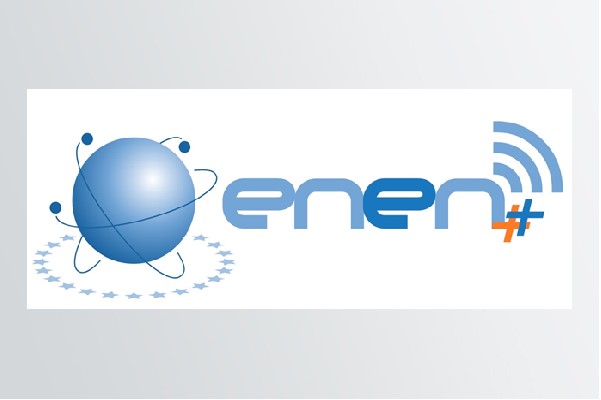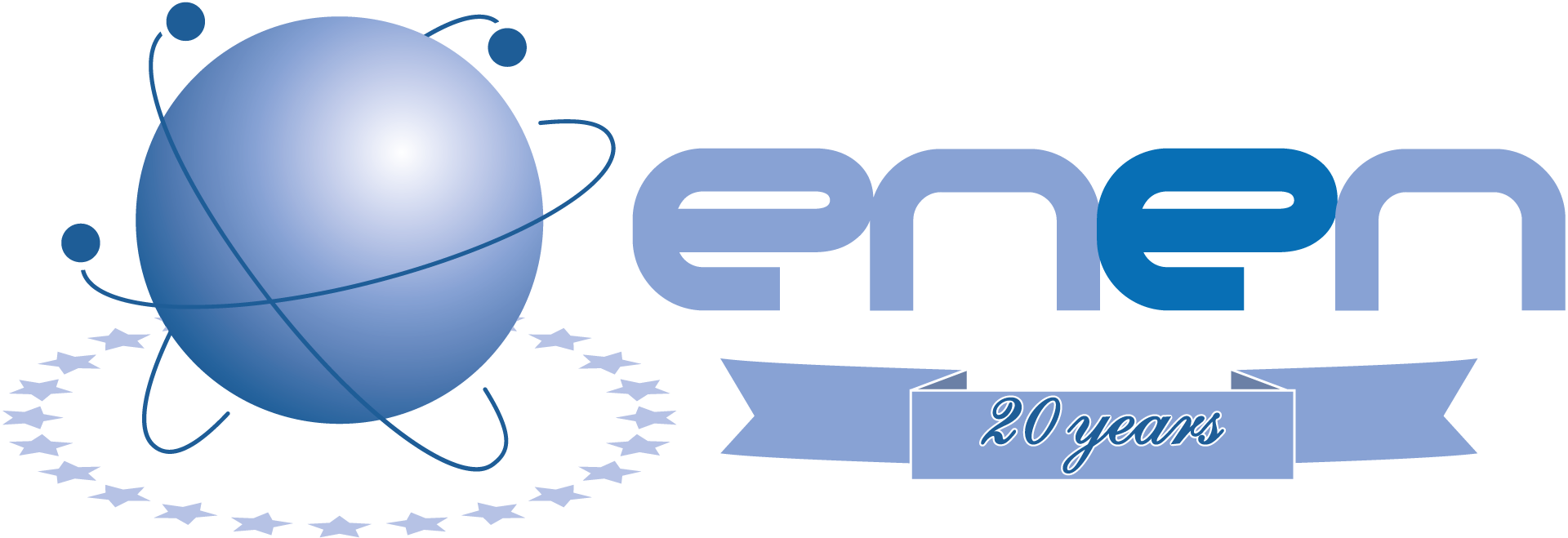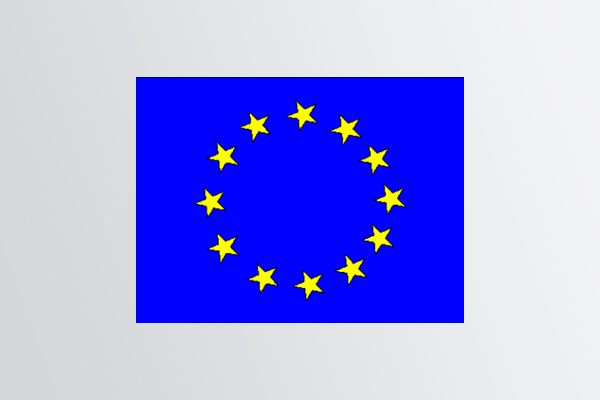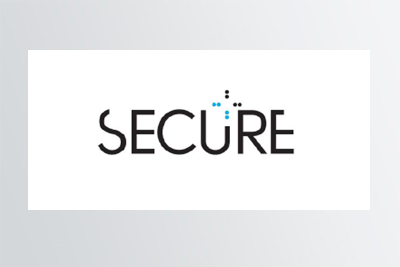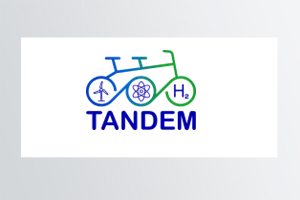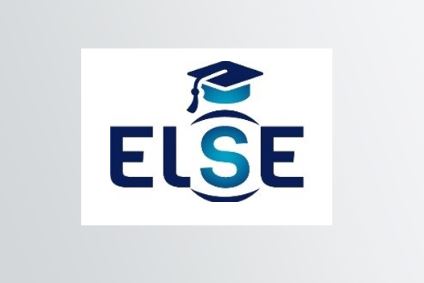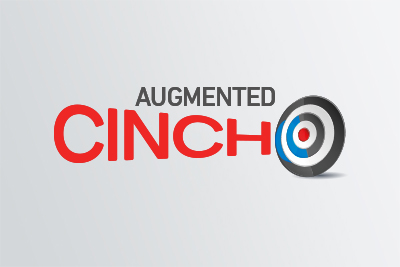The first phase is provided by universities and training centers, the second and third phases are provided by future employer in research and industry.
> European Fission Training Scheme (EFTS)
> Starting on 1 May 2009 for the period of three years
> Coordinator: ENEN Association
Project summary
ENEN III PROJECT SUMMARY
There is a strong need for high-level training of young specialists in the nuclear sector. This is due to the combination of the ageing of the actual manpower and the starting nuclear renaissance. It is critical to maintain the safety and efficiency of the existing nuclear installations and to build and prepare the development of the next generations of facilities. Well designed training is therefore necessary, allowing the handling of the technical challenges with all safety assurances.
Major industrial organisations have the means, both in terms of expertise and finances, to hire young engineers and to train them for the specific duties, through a combination of in-house programmes, training courses available on the market, and, not to be neglected, on-the-job training. It is much more problematic for smaller organisations and in countries where recent policies with respect to nuclear energy has led to the decrease in nuclear education and research funding. Synergies would be beneficial in all cases.
The assessment of the needs identified a list of generic types of training where specific training schemes have to be developed including training sessions, seminars, workshops, etc. to constitute the portfolio offered to postgraduates and professionals for training and further personal development. Training schemes in the following four generic types will be developed in the project:
Type A) Basic training in selected nuclear topics for non-nuclear engineers and professionals in the nuclear industry.
The shortage of engineers with basic nuclear knowledge with respect to the demands of the industry leads to the concept of providing education and training of nuclear topics to non-nuclear engineers during graduation or as postgraduate courses. The target group consists of engineers supporting the operation of a Nuclear Power Plant, for example:
- Programme Engineer
- Performance/Reliability Engineer
- System/Component/Maintenance Engineer
- Design Engineer
- Safety Assessment Engineer
The experience obtained during the FP6 NEPTUNO project will be exploited to define the qualification profile with the required knowledge and skills. The NEPTUNO project aimed at a few key positions in the plant, outlining the job descriptions, the corresponding set of core qualifications and competences and a recommended training programme. The current ENEN-III project intends to provide essential knowledge and skills to a broader target group of professionals working in the nuclear industry.
Type B) Basic training in selected nuclear topics for personnel of contractors and subcontractors of nuclear facilities.
Nuclear facilities contractors are defined as any personnel working for a nuclear facility who are not directly employed by this nuclear facility. In 2001, the International Atomic Energy Agency published a technical document on assuring the competence of NPP contractor (and subcontractor) personnel. The document displays general conclusions and recommendations, followed by a diversity of contractor personnel assessment schemes and utility case studies. The compilation of the individual approaches in different countries and by different utilities is certainly very valuable, but the variety observed shows that a common and mutually recognised training scheme for NPP contractor and subcontractor personnel would be beneficial and provide considerable added value on a European scale.
Contractor personnel provide essential services to nuclear power plants, particularly during plant outages or for projects involving major upgrades to plants. In providing these services contractor personnel encounter similar problems to those that challenge nuclear power plant personnel. Accordingly, contractor personnel must be similarly competent and effectively interface with NPP personnel when performing their assigned duties. It is in this context that a well-designed training scheme would assure the competence of contractor personnel. Accreditation and recognition of the training scheme on a European level would alleviate the assessment of the contractors’ competence and skills by the utilities.
Type C) Technical training for the design and construction challenges of Gen III Nuclear Power Plants.
The Generation III reactors currently in the construction and planning stages have been designed on the basis of several fundamentally different concepts with respect to Generation II reactors and their evolutionary improvements and black fittings. Following the categorisation of those concepts by T. Dominguez, five different fields can be identified and the challenges they represent should be addressed in the education and training programme for the engineers involved in the detailed design and construction of those GEN III plants.
The first field is the technology, including passive safety systems, for extensive use of mixed oxide fuels, high burn-up resistant fuels, new materials, etc. The second field is the international dimension of the GEN III design, forcing and requiring the harmonisation of licensing criteria and procedures, of quality standards, certification programmes and validation tests. The third field relates to the changing infrastructure and organisation of the construction projects, involving the utilities, the vendors, the safety organisations and their interactions. Cost optimisation strategies by reducing the construction period and exploitation of past operational experience to reduce or eliminate unnecessary margins and tolerances is the fourth category. The recovery of infrastructures and component manufacturing techniques is an additional element in this category. Finally, the extensive availability and use of innovative engineering software tools, 3D models, standardisation, optimisation and automatisation is the fifth field to be addressed in the training of the new nuclear engineer.
Training schemes for GEN III construction should therefore address the innovative technologies, the safety requirements, the project stakeholders, interactions and logistics, the operational experience, and the design codes, standards and tools.
Type D) Technical training on the concepts and design of GEN IV nuclear reactors
Research centres and engineering companies are studying and developing advanced reactor concepts of the fourth generation to optimise energy production and reduce the quantities and the long-term risks of nuclear waste. In the same way as the utilities operating nuclear power plants and their contractors, the research centres are facing the shortage of engineers with a satisfactory background in nuclear disciplines and expressed their interest in a training scheme on the concepts and design of GEN IV nuclear reactors.
The GEN IV nuclear reactors are characterised by higher operating temperatures, requiring gas or liquid metal coolants in the primary circuit, although supercritical water cooling and molten salts are possible options as well. High-temperature materials, corrosion effects, liquid metal dynamics, heat exchangers are typical topics which would fit this training scheme. GEN IV nuclear reactors are also characterised by fast neutron fluxes for both breeding fresh fuel in blanket materials and enhanced burning of long-lived waste products. In combination with the higher temperatures and the new primary coolants, those features will need the development and testing of entirely new nuclear fuels and fuel cycles, together with new fuel fabrication and fuel recycling concepts. A training scheme for the design of GEN IV nuclear reactors, including this large variety of components, will be more research-oriented and will have a broader and less specialised scope than the former ones. Nevertheless, it is expected to respond to the current needs of the research communities in order to design and build the prototypes of the nuclear reactors of the future.
Systematic Approach for Training
The training schemes will be developed according to the systematic approach for training (SAT) and will include the following five phases.
Analysis
In cooperation with the future employers and the Advisory Board, an analysis will be made of the required qualifications and skills to perform the tasks of a specific professional profile. The analysis will be based on past experience, lessons learned and recommendations of the stakeholders, e.g. regulatory bodies, utilities, and international organisations active in the field, e.g. the International Atomic Energy Agency.
Design
The training scheme will be designed in detail to provide to the trainees the general background knowledge, the basic and specialist theoretical education, and the practical work and experience to develop the required qualifications and skills. The training scheme will show the different entry points for trainees with different backgrounds and education levels. In principle, the minimum starting level will be the second year of the Master level or after graduation to the Master level.
Development
A survey will be made to identify the education and training organisations providing the necessary components of the training scheme in terms of courses, seminars, workshops, internships, etc. If necessary new modules will be developed and tested to cover the full scope of the required qualifications and skills.
Evaluation
The evaluation phase will have two components. The first evaluation will be carried out by a quality assurance group together with the future employers to verify the technical content and pedagogical value of the components of the training scheme and the logical sequence of the different modules.
The second evaluation will be carried out after running the training schemes with a number of trainees and assessing the qualifications acquired and the skills developed during the training. This evaluation will be the final phase of the project and will include recommendations for optimising and improving the training scheme.
Implementation
After passing the first phase of the evaluation, the training schemes will be run in a test phase with trainees supported or already employed by future employers.

